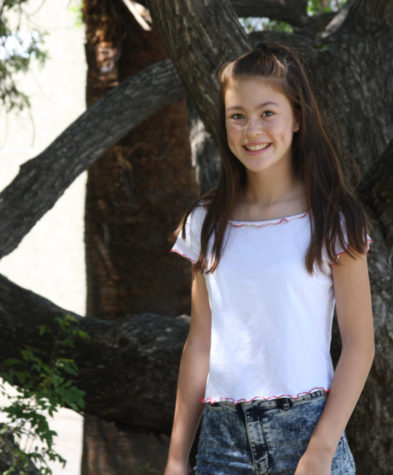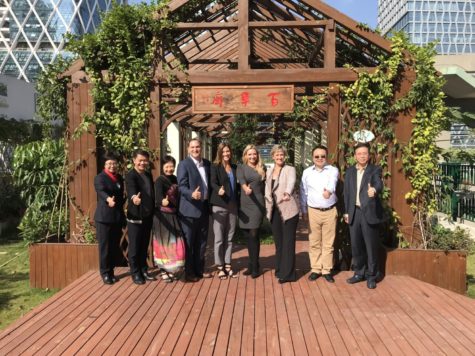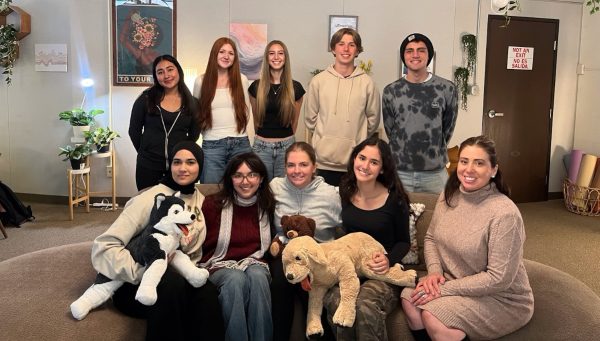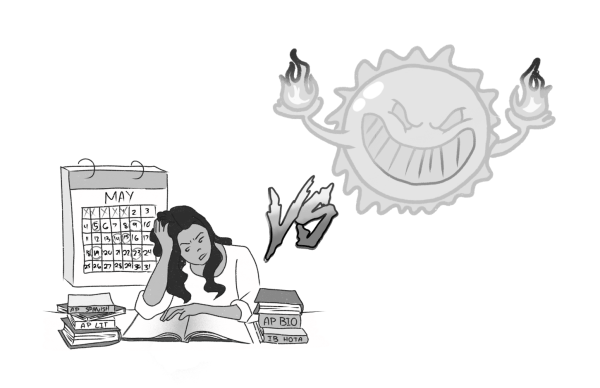Students Meet Crixivan HIV Medication Creator
Both AP biology teacher Eric Tucker and Biology teacher Carolyn Han recently selected five AP Biology students and five biology students that they thought would be best fit to attend a lecture series at Pomona College. Tucker and Han were both invited to the annual Robbin’s Lecture Series hosted by Pomona College, a series of lectures in which a variety of influential people display their monumental discoveries in front of a large group of college students and staff. The biology teachers decided to take students on a field trip to see Paul Reider’s lecture about his discovery of the antiretroviral Crixivan HIV medication.
On the night of Jan. 29, for the first time, CHS students attended the Robbin’s Lecture Series. Before the lecture, they had dinner and a Q&A with the lecturer, Dr. Reider, as well as a few other teens from different high schools who are interested in biology as well. Among these students was senior Allison Bifone from the AP Biology class with Mr. Tucker.
“We got to learn about his background and what caused him to be a part of creating HIV treatments,” Bifone said.
After the interactive discussion with Dr. Reider, the group went to the lecture hall where he continued to talk to them about how the medication works. He talked about the tedious process he had to go through to create the right drug and its dosage. Nobody had been able to discover this treatment before, Dr. Reider was the first after much hard work. His original HIV medication was made with his development of his antiretroviral Crixivan, which is used globally to make AIDS treatment more manageable. According to Pomona College, as a member of the pharmaceutical industry for 28 years, Reider contributed to the discovery of 14 approved drugs. Later, the students were able to ask more questions when the lecture was over. Aside from the HIV lecture, there were many other lectures throughout the week that were not invite only that many students attended to listen.
“Mr. Tucker and I feel that overall, the experience was eye-opening and exciting because the students could see that there was a real-life application to the content they are learning right now,” Han said.
Han and Tucker agreed that the lecture pushed their students to be resilient and enthusiastic, even when faced with challenges and failure.
In the end, the biology field trip was a total success. The students gained knowledge from the lecture and are now well-informed on the biology-related topic of HIV. Reider put years of hard work into the treatment for HIV, and the students on the field trip got to learn more about his discovery. It was a great experience for both the students and teachers, and they definitely would consider going again in future years.
Hello there! Our goal is to provide relavent, engaging journalism for readers of all ages. Your donation will support the student journalists of the Wolfpacket at Claremont High School, and will allow us to purchase equipment, print our monthly issues, and enter in journalism competitions. We appreciate your consideration!

Makayla Oas is a freshman at CHS and it is her first year on the Wolfpacket as a reporter.







